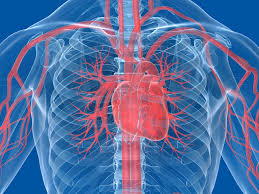This week kicks off Vascular Nurses Week, the annual September celebration of the vascular nursing specialty and the work of nurses in this area.
Vascular nurses work with patients who have different kinds of conditions or illnesses that impact the circulatory system. Because the vascular system is responsible for transporting blood and lymph fluids throughout the body, there’s a lot of ground for vascular nurses to cover. Vascular nurses understand how the veins and arteries in the body work and how the job of bringing fresh oxygen and blood to organs while also removing waste keeps the body functioning in optimal health.
The Society of Vascular Nursing is a great resource as a professional organization devoted to nurses in this specialty. Vascular nurses often work in outpatient settings or in hospitals to treat patients recovering from surgery, undergoing treatment, or maintaining their long-term health. They will see patients who have conditions as varied as blood cancers (such as lymphoma), cardiovascular disease, or varicose veins. With such a range of conditions, vascular nurses treat patients of all ages and from all backgrounds.
Some patients under the care of a vascular nurse will have minor symptoms (such as some varicose vein treatment) and others will require extensive treatment and rehabilitation (from heart surgery). Vascular nurses are in an excellent position to help patients learn how to recover from a procedure, how to manage on-going symptoms, and to offer evidence-backed education on lifestyle changes.
Whether they are monitoring a patient immediately after a procedure or continuing an on-going relationship with a long-term patient, vascular nurses will check in with patients to see how they are progressing, to ask about how their medication is making them feel and if they have any side-effects, and to find out about current or new symptoms. They may be tasked with giving direction on how to make important lifestyle changes to diet and exercise, or they might help patients who need to learn how to find methods to reduce stress that will work for them. Because some vascular-based conditions, such as hypertension, disproportionately impact traditionally underrepresented communities, nurses should be especially aware of patients who may be at an increased risk.
When thinking about lifestyle changes–whether that’s increasing exercise, following a low-fat or low-salt diet, or reducing stress–nurses will want to really listen to a patient to find out about their typical days and how they live. Changes that work for patients are the ones that consider their particular barriers to following what is instructed. A mom with three kids, a full-time job, and parents to look after may not be able to follow a routine that includes an hour of daily vigorous exercise and time for meditation. She might, however, be able to fit in short bursts of jumping jacks or marching in place–both of which can reduce stress and count as exercise–and longer planned sessions. For a grandfather who hosts lots of family get togethers, where traditional food is an essential part of the gathering, implementing a strict diet will be nearly impossible to follow. In this case, some recipe makeovers can help as can listening to the patient to figure out what other healthy choices could be included to help him balance any heavier choices.
Vascular nurses play a vital role in how their patients navigate the many conditions related to the vascular system. This annual awareness week helps spread awareness and celebrate the work these nurses do.
- Is the FNP Program Right for You? - April 24, 2024
- WOC Nurses Week Highlights Specialty - April 16, 2024
- Honoring Radiology Nurses Day on April 12 - April 12, 2024



